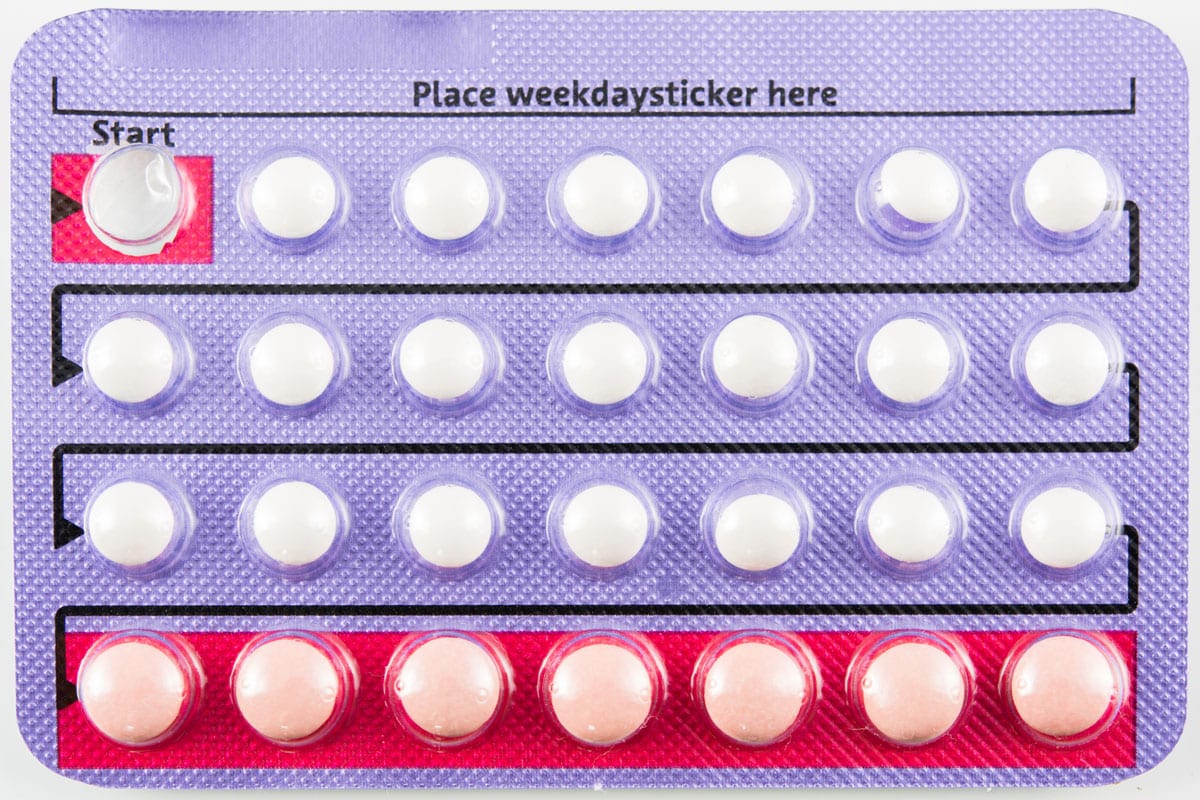
The seven-day break built into the schedule of the contraceptive pill isn’t backed by medical science—it is instead from a gynaecologist in the ‘60s who, by mimicking the natural rhythms of a woman’s cycle as closely as possible, was trying to persuade the pope to let the Catholic Church adopt the birth control form.
Periods on the Pill
Women on the Pill, the most popular method of birth control, know how it goes: take the Pill for three weeks and then either switch to a sugar pill or forgo taking any tablets during the fourth week.
During the fourth week, women on the Pill will bleed; however, it’s important to note that the ‘period’ you get while on the Pill isn’t a real period. It’s called “withdrawal bleeding,” which refers to the withdrawal experienced from taking a week off of the Pill’s hormones. The drop-in hormone levels cause the lining of the uterus to shed, which is what leads to period-like bleeding.
Some women say they appreciate the bleeding as an indication that they’re not pregnant; however, Pill periods aren’t actually a guarantee of that. Monthly bleeding on the Pill is just a reaction to no longer having contraceptive chemicals in your system.
How did we get here?
If the period experienced by women doesn’t fulfill the functions of a period, is it medically necessary to bleed every month?
Not according to the Faculty of Sexual and Reproductive Healthcare, who made headlines this week when it announced about the Pill, “there is no health benefit from the seven-day hormone-free interval.”
In fact, the origin of the Pill’s off week comes from John Rock, one of the gynecologists who was involved with the development of the contraceptive. A devout Catholic, Dr. Rock built in the break in order to please the Catholic Church and, he hoped, earn the endorsement of the pope at the time.
“In the Catholic Church the rhythm method is an accepted form of birth control,” said Sophia Yen, M.D., a gynecologist in California and founder of Pandia Health, to Glamour UK. “So his thought was that if he could make women’s periods rock solid and regular, it would make this method easier to practice [and more appealing to the Church].”
His plan didn’t work—the pope didn’t go for it and ultimately decided the Church wouldn’t support Catholics using birth control of any kind—but nevertheless, the built-in breaks to allow for a monthly period stuck.
In other words, the reason women on the Pill have been having regular periods month after month for the past 60 years is because one man was trying to please another man—and it didn’t even work.
It’s ok to not take a break
For many women, taking the Pill continuously may actually have some benefits. The sudden drop in estrogen levels experienced during the off week can lead to headaches. Continuous use can also reduce acne and eliminate the possibility of painful periods.
It might seem obvious, but most women would happily skip monthly bleeding if they knew it was safe, a survey conducted by Pandia Health in 2018 revealed.
So here we are in 2019—a place where the myth about a “build-up of menstrual blood” when you don’t have a period is still widely accepted and our Pill-period schedules are dictated by a misguided and long-deceased doctor.
Menstruation is closely tied to the concept of female identity and fighting the stigma associated with not having one requires cutting through many layers of internalized attitudes about femininity. The word “unnatural” comes up a lot when discussing medically preventing your period. Yet there are several accepted forms of birth control on the market that do just that, like the hormonal IUD and the shot.
Much of the conversation around eliminating menstruation focuses on women who have debilitating periods, and while it’s important to continue research in this area specifically for women who need to control their painful and heavy periods, it’s also worth considering those who are simply inconvenienced by their periods and would rather not have them.
“I love to travel, I love to spend time outdoors. I love not having to worry about a period,” said one woman to The Atlantic.
With FSRH’s new report, she can rest assured that it is safe to do so.
See also: Women’s Health Watch: In Stirrups















